CCHA Celebrates Title IX
POST DATE: 6.30.22

Former Indiana Senator Evan Bayh and CCHA’s Julie Roe Lach speak on Title IX.

To view a message from former Indiana Senator Evan Bayh and CCHA’s Julie Roe Lach on Title IX, click here.
“On the basis of sex.”
In 1972, five words included in Title IX of the Education Amendments paved the way for women everywhere to participate in, benefit from, and avoid discrimination as part of federally-funded education programs and activities. In the five decades since its passage, Title IX has set the framework for gender equity in myriad programs and activities, but it has become nearly synonymous with women’s sports. CCHA’s college sports group continues the great work of Title IX today, both as a women-led practice group and with its work in gender equity assessments and sexual assault investigations. As Title IX turns 50 this summer, though, we celebrate something else: the people of CCHA and what Title IX has meant to us and our families.
For many of our colleagues, it was simply about the chance to participate in sports individually, whether it was Jessica Wingate competing with Gus Macker on the streets of Indiana in the 1990s, Camilla Scott playing intramural soccer in her days at Brigham Young University, Emily Schmale cheering on the sidelines at Saint Mary’s College, or Katt Boaz playing club volleyball at Purdue University.
Jane McGill competed as a field hockey athlete at Washington and Lee University before returning to the sidelines – Juris Doctor in hand – as a coach at her alma mater for two seasons. Jane happily passed along photos from her playing days, including one particularly memorable team photo, saying, “I’ve been like this for a long time.”
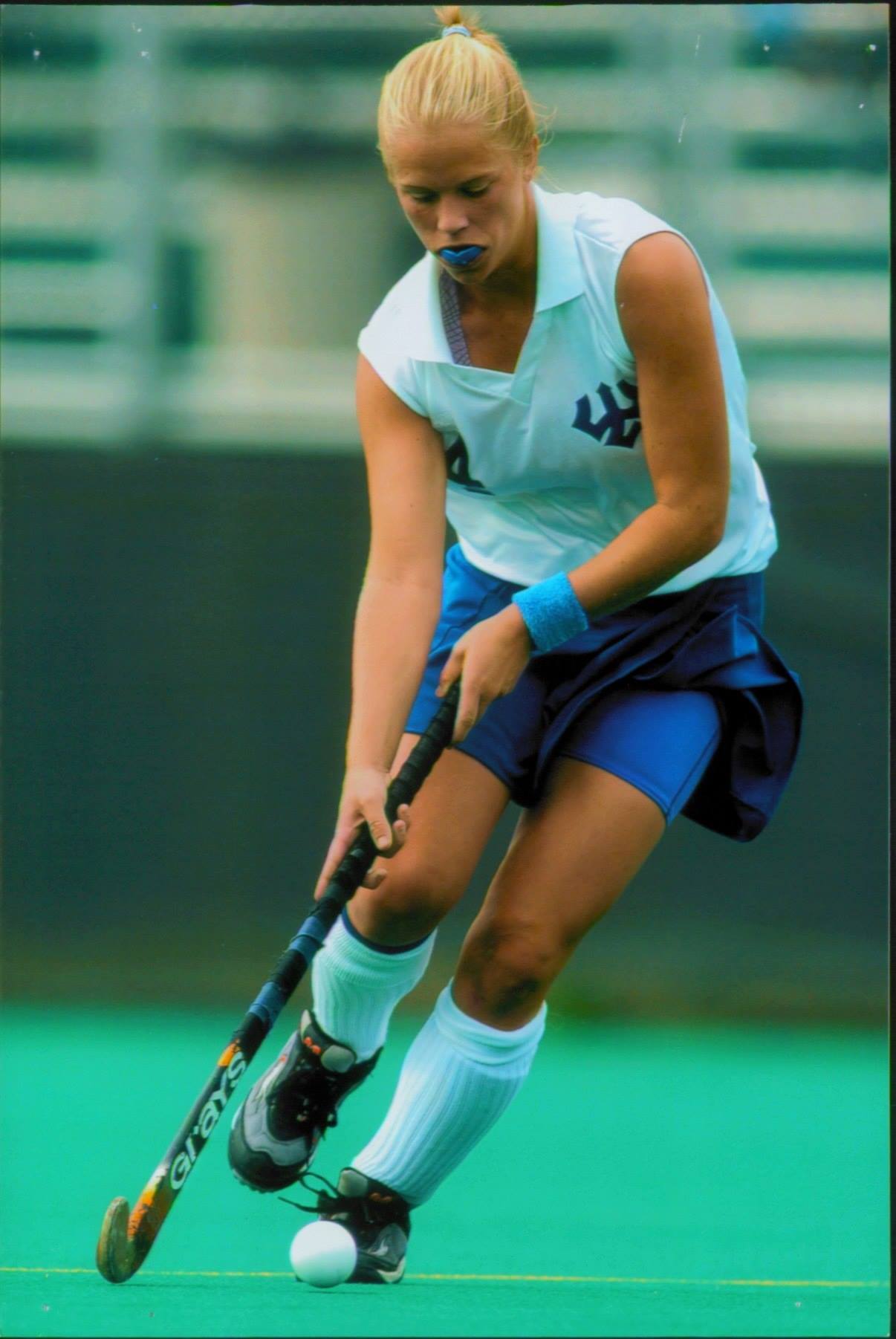
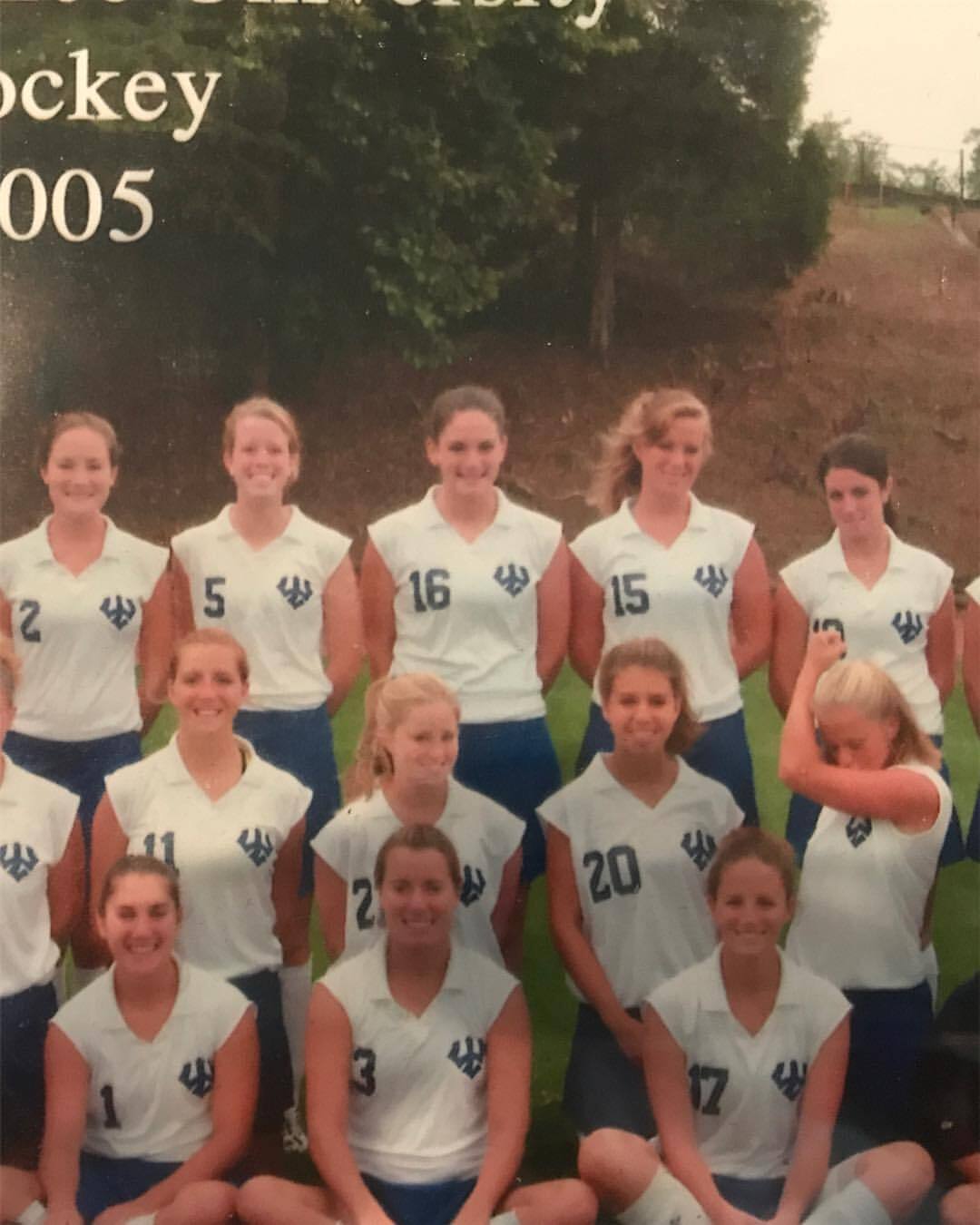
While Julie Roe Lach’s sister competed on the softball diamond, Julie herself played basketball at Milliken University. (Her playing days were the subject of a memorable story from the former dean of enrollment in this video from Milliken celebrating Title IX.) The tradition continues to the next generation in Julie’s family with her daughters Harper and Halle enjoying the early days of their own basketball careers.
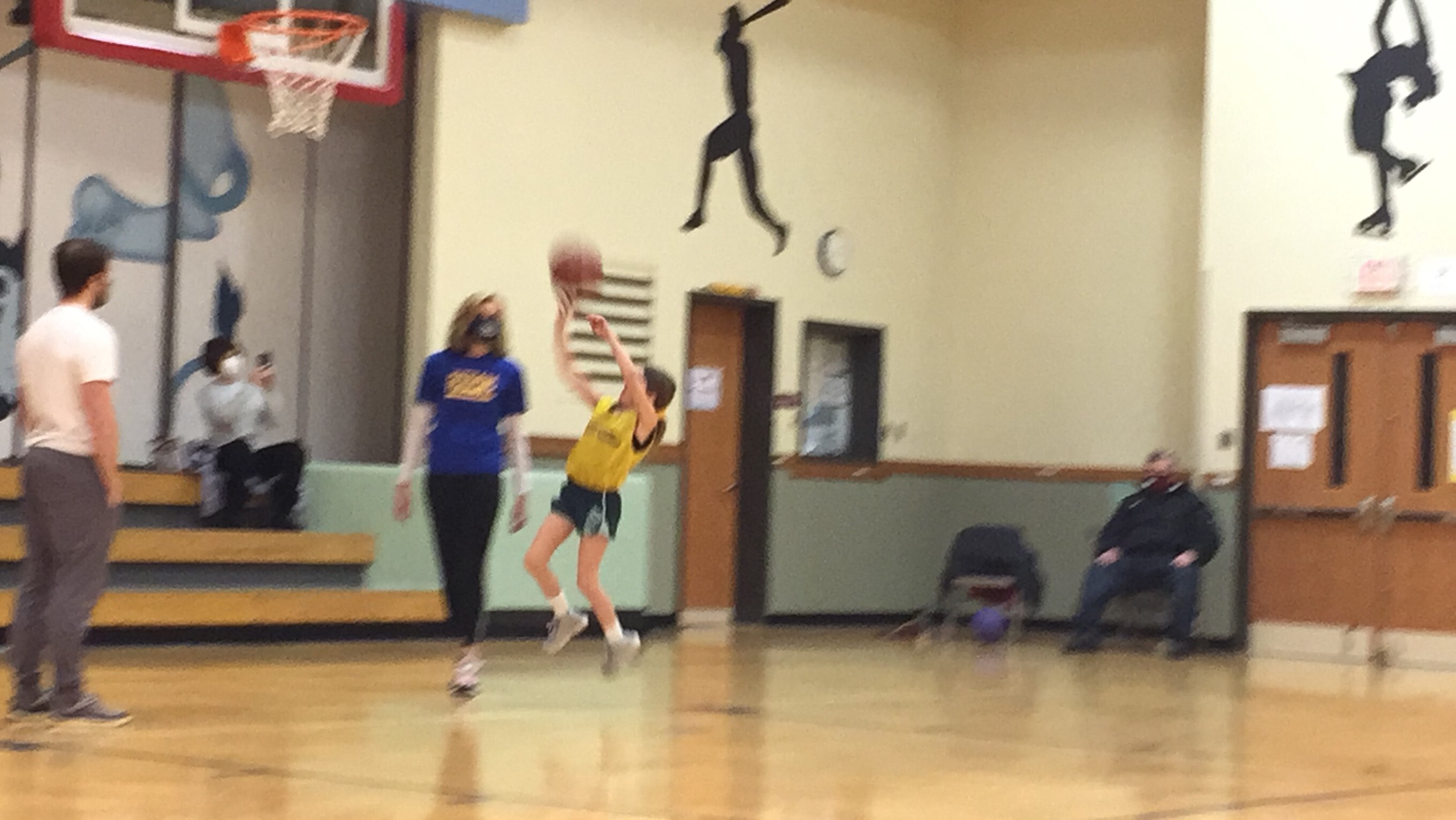
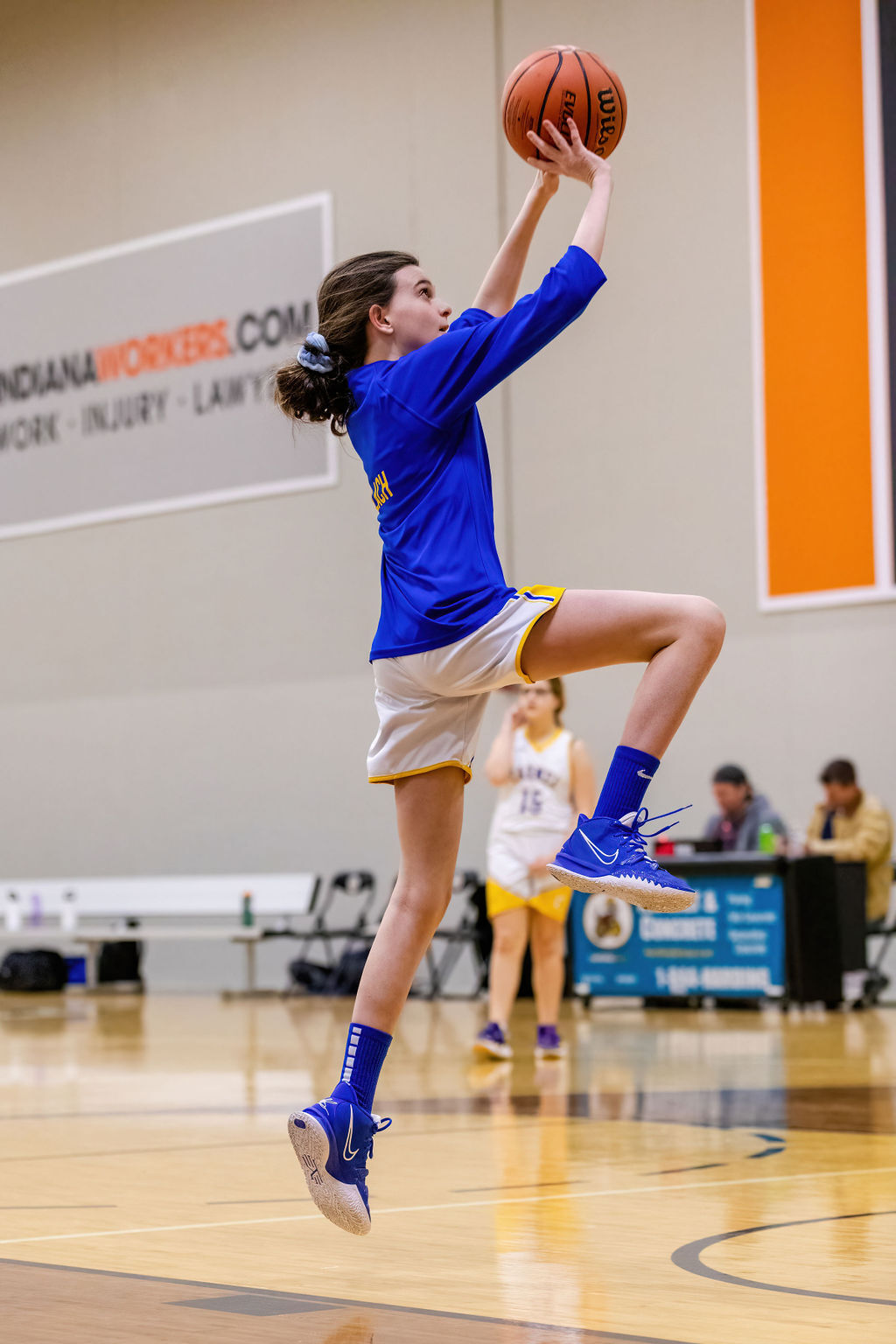
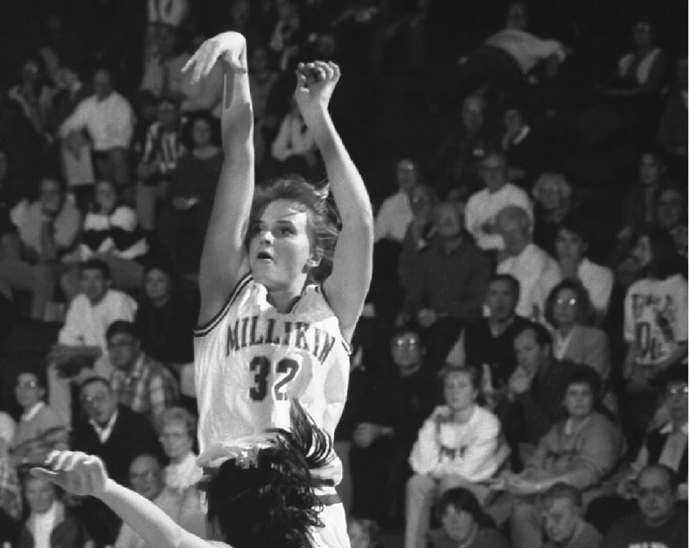
Kelleigh Fagan golfed at Noblesville High School on teams that amassed second, third, and fourth place finishes in the IHSAA tournament across each of her four years. Kelleigh shared a particularly memorable experience when she served as the first alternate for the state championship team and was called into action when the team’s top golfer was injured and unable to compete. As a result, she stepped into the #1 position – as a freshman – to square off against the two best teams and golfers in the state. “Needless to say, I didn’t score quite as well as my competitors but it was a great experience,” she noted. Kelleigh went on to compete for the University of Indianapolis before injury sidelined her following her first season. Coincidentally enough, though, her experience on the golf team connected her to a job in the athletic department, which then led to an internship with the NCAA enforcement staff, and ultimately, to starting the only exclusively female college sports law practice in the country in 2014.
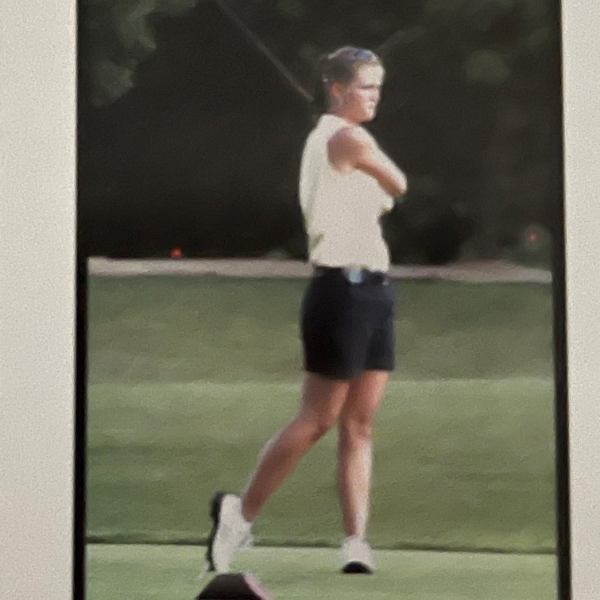
For other colleagues, the impact of Title IX was about the athletic achievements of friends and families. Jessica Schnelker’s mom cheered at Trine University (then Tri State University) before graduating with an elementary education degree; Brent Borg’s sister was a swimmer at Purdue University; and law clerks Connor Glass and Sam Kannmacher supported friends and significant others on the soccer pitch, in the swimming pool, and on the basketball court during their undergraduate years at Indiana University and Purdue University, respectively.
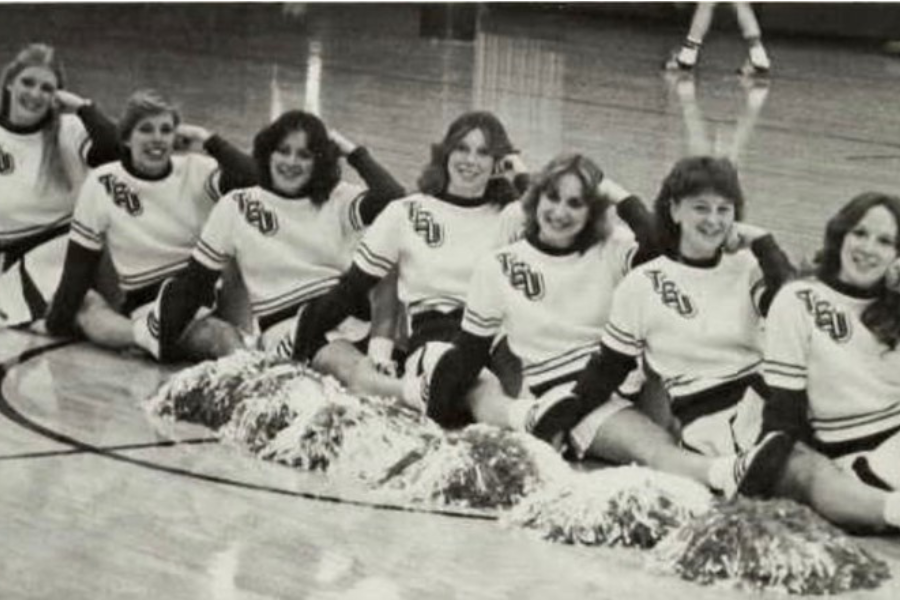
Karen Krupski’s cousin, Jody (Beerman) Kelley, played basketball, and in 1983 Jody not only earned Indiana Miss Basketball honors but also a highly coveted Wheaties box appearance. Fast forward 30 years, and Beerman’s achievements at Heritage High School and Central Michigan University landed her in both the Indiana and Central Michigan halls of fame. Moreover, as Karen’s family was celebrating Beerman’s basketball legacy with her induction into the Indiana Basketball Hall of Fame in 2010, they were already enjoying the on-court successes of another generation in Laura (Bugher) Andrews’ career at Bowling Green State University. “Basketball runs in the family!” Karen offered. “Height is a family trait on my mom’s side of the family.”
Libby Roberts’ sisters in law can be found on the pages of the IUPUI record books. Katie (Murphy) Waggoner and Muffy (Murphy) Price dominated the basketball court and softball diamond in the mid-1990s. Muffy achieved All-American honors in both softball and basketball and earned a spot in the IUPUI Hall of Fame in 2001 for her basketball achievements. She continues to hold records for, among other things, points scored in a game, three-point field goals and assists in a season, and career records for three-point goals, attempts, and percentage.
CCHA’s most recent hall of fame ties can be found in Buffalo, New York. Katie Collyer’s mom and aunts competed across nearly every athletic venue in Buffalo in the 1980s. Her mom Mary played tennis, basketball, and softball in high school and received an Evans Scholarship from her days caddying at the (all-male) Buffalo Country Club. Two of Katie’s aunts, Tricia and Kathleen, played volleyball, basketball, field hockey, and softball in high school, and contributed to a volleyball team that posted a record 292-game winning streak. A third aunt, Lynn, played basketball, softball (with a record six shutouts in the 1988 season), and field hockey. Lynn continued her field hockey career as a goalie at Central Michigan, Tricia played volleyball at Syracuse, and Kathleen played softball and volleyball at Edinboro University. Both Tricia and Kathleen were inducted into the Greater Buffalo Sports Hall of Fame in June 2022 for their contributions to their record-setting high school volleyball team. Katie noted her grandfather, Larry, served as the ringleader of the group, coaching each of the daughters in some sport over their careers and spending more than 30 years on the bench himself as a girls high school basketball coach – including one state championship run. “However, I think they really get their competitive drive from my grandma, Lois,” Katie shared. “That woman has never let any of her grandkids win a board game and is regularly the bocce ball champion at her local senior center.”
There is no lack of parents willing to share their daughters’ successes among the CCHA ranks either. Jack Hittle’s daughter played basketball at Wittenberg University, and he proudly displays a photo from her playing days on the wall in his office. Bruce Bittner’s daughter, Katie, was a high school All-American and an Indiana High School Diving champion in 2009. (Thanks to YouTube, you can watch her dive at the 7:10 mark of this video.) During her high school and club competition days, Katie competed with future Olympians and ultimately finished her career as a collegiate diver at Indiana University. “I remember Jack Hittle asking me a few days before the competition if I thought she had a chance to win,” said Bruce of Katie’s run to the state title. “Of course, I said yes.” Leslie Henderzahs’ three daughters competed in high school: Madelyn as a cheerleader and gymnast and Caroline and Shelby as soccer players. Both Caroline and Shelby continued their careers at Hanover College, which included appearances in the NCAA tournament.
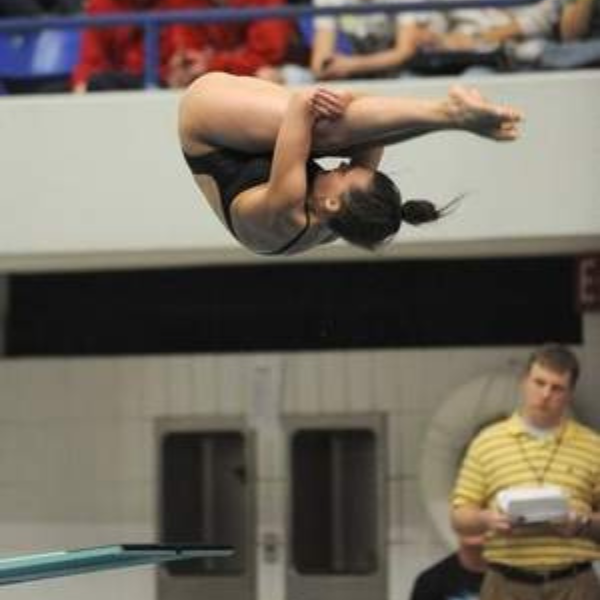
In addition to sharing about her daughters’ athletic successes, Leslie also offered anecdotes to illustrate the accomplishment of both of her grandmothers in an era that predated Title IX and the national commitment to equity in sports. Lucille Craig, her paternal grandmother, played a version of intramural basketball at IU in the 1920s. “It was remarkable because she was very petite, principled, lady-like, but very Irish and very competitive,” shared Leslie. “She had an out of place crooked broken pinky which fascinated me as a kid because it seemed like it did not belong on her otherwise well-manicured hand. She broke that pinky in a scuffle over a rebound.” Artis Main, Leslie’s maternal grandmother, was a swimming instructor for YMCA and Girl Scout camps and a skilled golfer who found a creative way to access courses even when her gender was a significant barrier. “She figured out that if she would show the cooks in the clubhouse how to prepare various dishes for the men golfers, she could have access to the golf course just about anytime she chose,” noted Leslie.

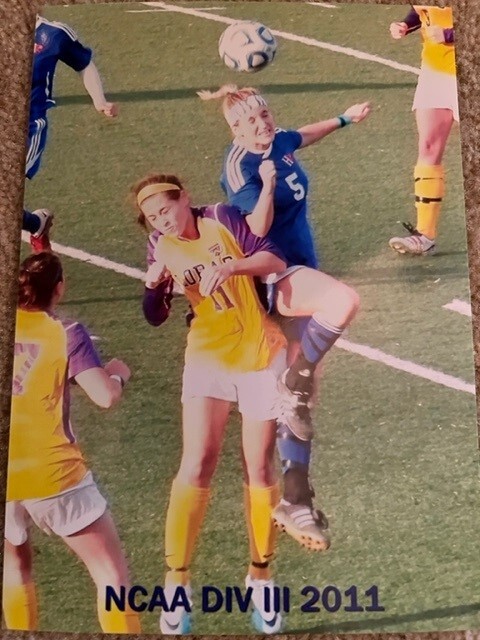
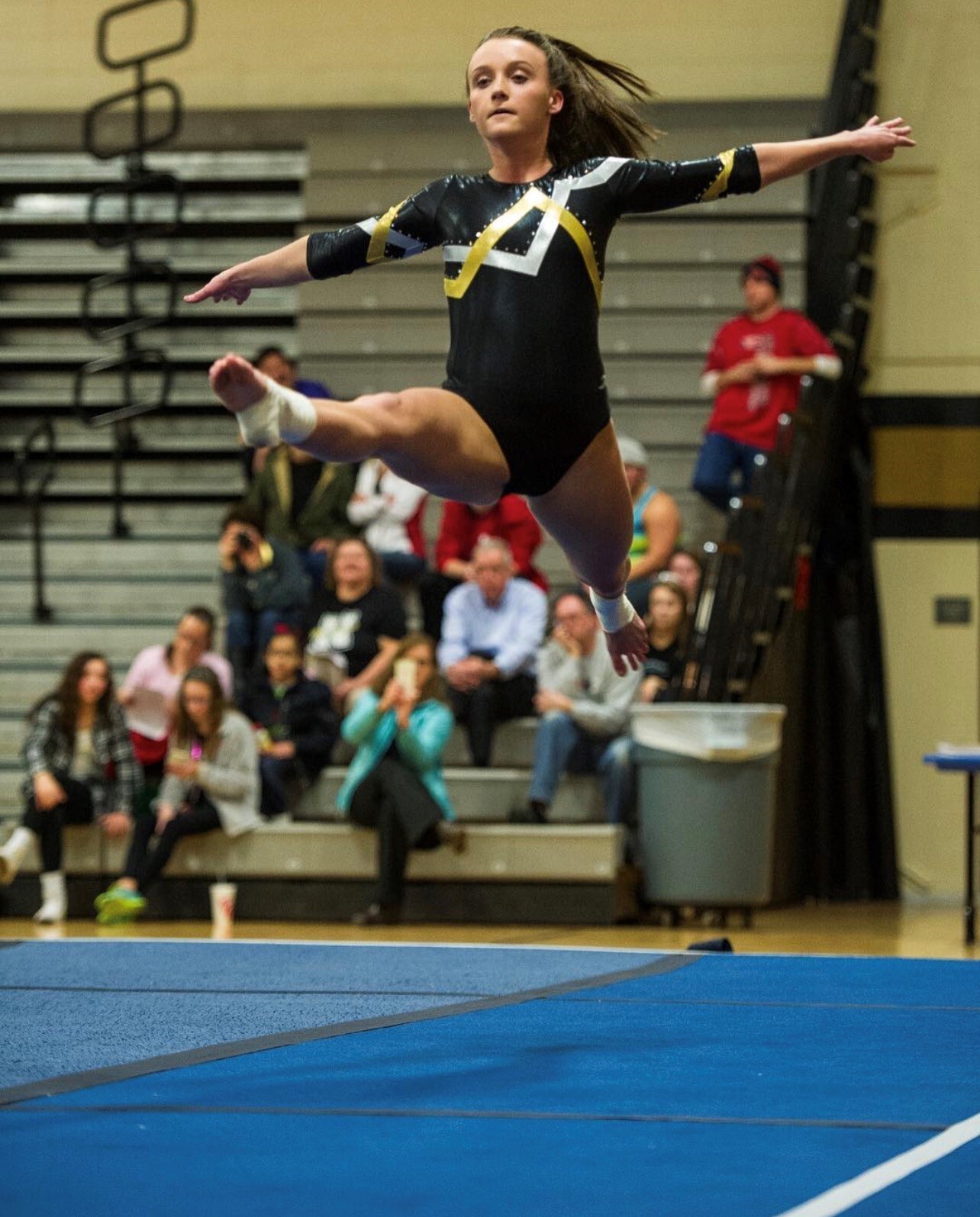
Final Thoughts on Title IX
Work remains to be done in the world of equity in sports and education programs. But as Title IX turns 50, it is valuable to pause for a moment, too, to reflect on what it has meant to us and the people we care about. We invite you do the same and to honor Title IX by celebrating the women in sports in your own lives.